Every one in twenty destroyed Russian tanks is down to their work. The story of the Ukrainian Security Service's White Wolf special unit and its commander, Oleh Yemets

The White Wolf special unit of the Alpha Special Group of the Security Service of Ukraine (SSU) celebrated a kind of anniversary in July of this year – 400 units of Russian equipment burned since the beginning of the full-scale war.
This figure is even more impressive if you know that this special unit alone accounts for about 5% of all Russian tanks destroyed by Ukrainian troops since the full-scale invasion.
On YouTube, you can see numerous videos by the SSU demonstrating the successes of the White Wolf unit. At the same time, there is very little public information about this special unit and its commander, Senior Lieutenant Oleh Yemets.
Ukrainska Pravda is fixing this omission.
Last but one vacancy
To what extent does a person determine their own fate, and to what extent does fate pave the way for them?
Kyiv, the second half of the 1990s. Unemployed Oleh Yemets enters the gates of a furniture factory. He is sure that he is the master of his own destiny. The factory belongs to Valeryi Khoroshkovskyi, not yet an oligarch, not a general, but a man of means who is a year younger than Yemets.
Oleh came to the factory entrance to get a job as a security guard. He has a sick child at home. The flat in which he lives with his family is rented. Money is still left for food, but it is running out quickly. God only knows, he really needs this job!
The security guard job is the last but one option available. Yemets had applied for several vacancies and even passed an interview at the Verkhovna Rada [Ukraine’s parliament] Committee on Ecology. But it didn't work out.
He is a biophysicist, a Candidate of Sciences [equivalent to PhD degree – ed.]. Many scientists knew that the distance between the microscope and the scales on the market was very short in the hungry 1990s in the post-Soviet space.
Yemets also knew, only for him, it was the distance between a microscope and a gun. There were times when he worked day after day: one day he guarded businessmen, and for the other two, he was writing his dissertation].
But that was in the past. Now the biochemist Yemets has come to the furniture factory to become a security guard. However, it was not to be. Someone else got the position.
So, he had to build a scientific career in the United States instead of taking the position of a security guard in Ukraine.
Having lost hope of finding a job in Kyiv, Oleh Yemets succumbed to fate and accepted the last offer – to take up a professorship at the University of Pittsburgh in Pennsylvania.
Many years would pass, and Yemets would walk near that factory one day. But he would feel neither malevolence nor pleasure.
"You could say it's fate," he concludes.
His path is a dance of fate and personal choice, where one partner leads, and then another.
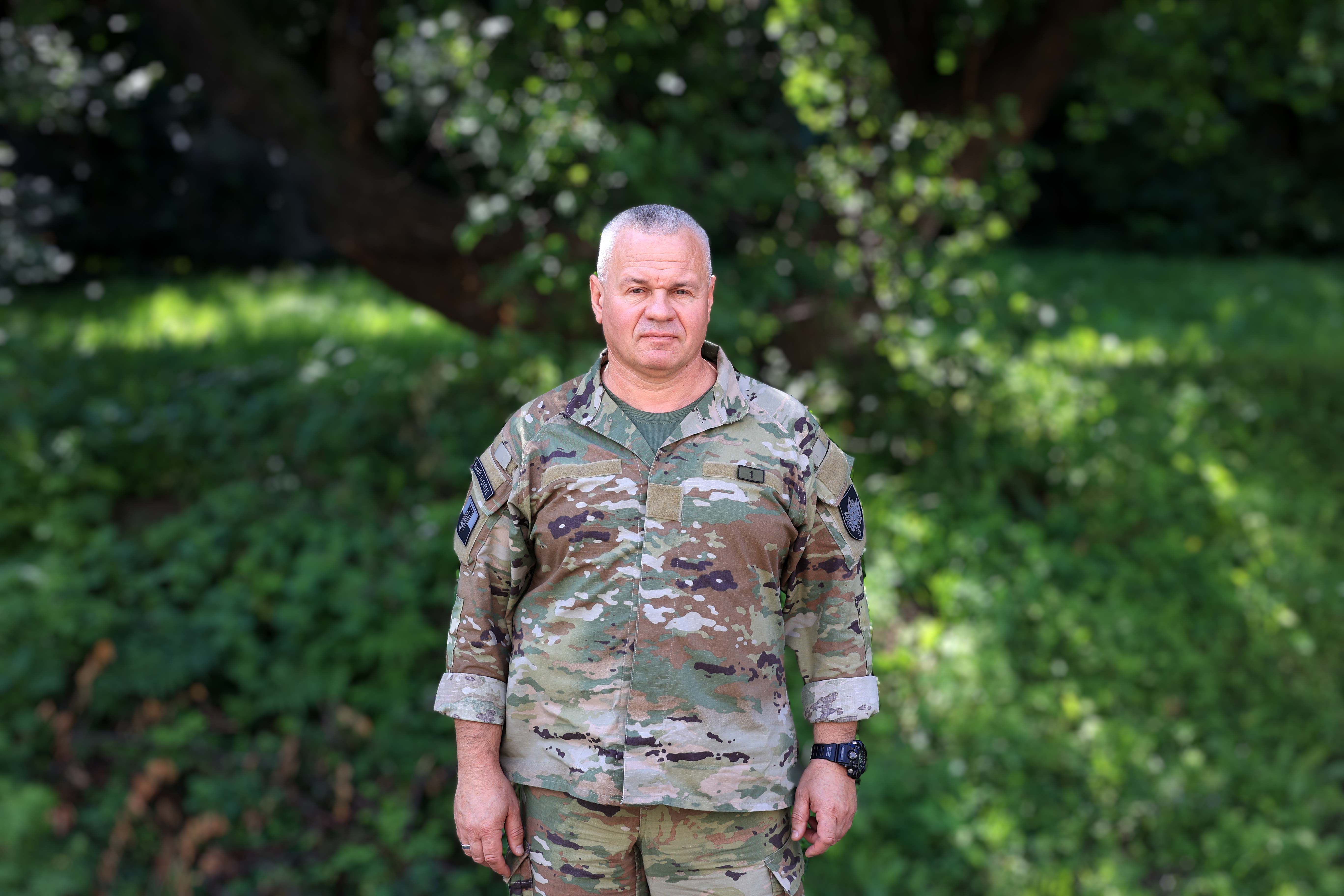
Smell of blood
Oleh Yemets believed in a future attack by Russia on Ukraine back in 2011.
As a reminder, Yanukovych ruled the country at the time, the Kharkiv Pact had already been signed, Patriarch Kirill of Moscow visited Ukraine occasionally, and students had been demanding the dismissal of "Ukrainophobe Tabachnyk" from the post of Minister of Education for a year. And the person who had not become Yemets' employer in the 1990s was in charge of the Security Service of Ukraine.
Yemets was already working in Ukraine at that time. He left the Brain Institute in Florida (he was invited there after Pittsburgh) in 2004 and returned to Kyiv on the eve of the Orange Revolution. Oleh felt he had got the most from the States and decided to cure his lingering nostalgia at home.
He founded a company specialising in molecular biology and genetic engineering and plunged into the abyss of Ukrainian business.
He names several reasons for his confidence in the inevitability of the future war. The first is that he received information (not classified, but Yemets uses his words carefully when talking about it) about infrastructure works in a certain territory of the Russian Federation. He was used to working with a large array of data as a scientist, so he could see the wood for the trees in terms of the impending war.
He picks up a knife to demonstrate the second reason.
Oleh places the knife on the table's edge, so the handle hangs above the floor and presses the blade against the surface.
"It is held only by my finger. This is an asymmetric state for a knife", he explains. "Similarly, our society got out of balance. Ukraine became like a big fruit that had grown enough to make a predator want to come here. The men of this land stopped showing the appropriate level of aggression to make the men of another land afraid to attack…"
It happens suddenly. The knife slips from under his finger and flies to the floor – a good, army one, the kind that cuts wire or tendons.
"There is another reason," Yemets reaches for the knife. "I could literally smell blood ."
After that, it seems superfluous to ask why the wolf became the totem of his unit.
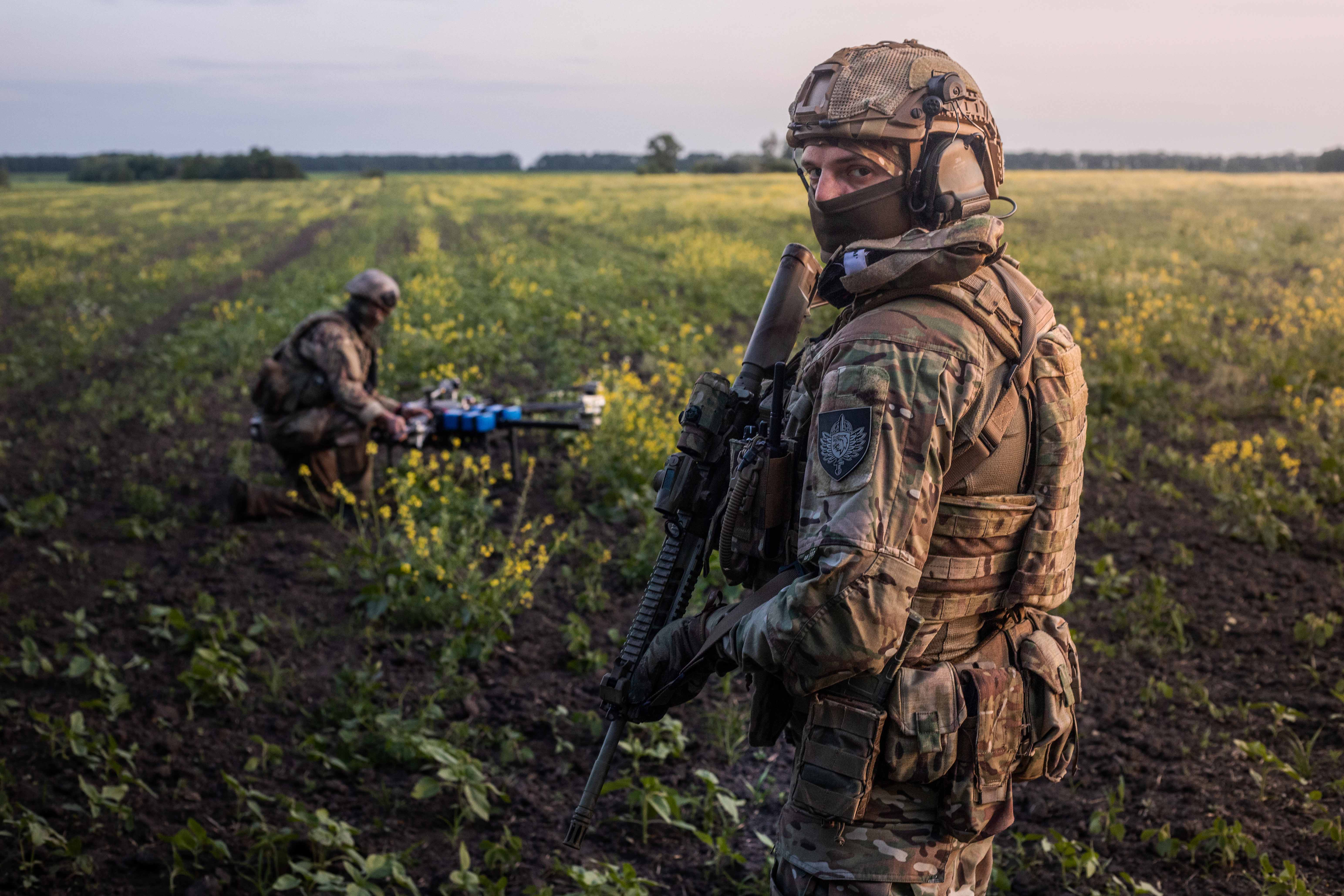
It would look like boasting if someone else said now that he had already predicted war back then, in 2011. However, Yemets has proof: that very year he opened the White Wolf Special Tactical Training Centre, and he registered a non-governmental organisation two years later.
"It was a community of like-minded people who understood that war was inevitable. We began to prepare as a unit with unified standards for conducting combat operations. We were equipped in the same way and coordinated regularly according to the programme we had prepared," he recalls.
The equipment was bought with their own money. Group training took place every week. A clear hierarchy was introduced. A kind of combat unit that simply had not yet entered combat.
Yemets draws an analogy with a broken thermometer. Just as balls of mercury connect together quickly, so in White Wolf, people with the same worldview underwent a process of self-assembly.
Among them are those who had no military background. Yemets explains it simply. Many people in uniform became soldiers accidentally. And some civilians are innately military. They got lost in life, entered the wrong door, and finally found themselves in White Wolf.
Fate had been preparing completely different doors for Yemets. His great-grandfather, grandfather and uncle were in the military. After school, young Oleh was also going to become a soldier after finishing school, he had a natural inclination to serve.
But he decided to try the beta version before finally choosing such a programme for his life. And he enlisted for military service for a fixed period to serve in airborne reconnaissance.
"While serving in an elite unit, I quickly realised that this elite was phoney, to a certain extent. Paratroopers break bricks with their heads and show off in other ways, but all this has nothing to do with the performance of combat tasks," Yemets says. "That's why I got involved in completely different things (after demobilisation – UP)."
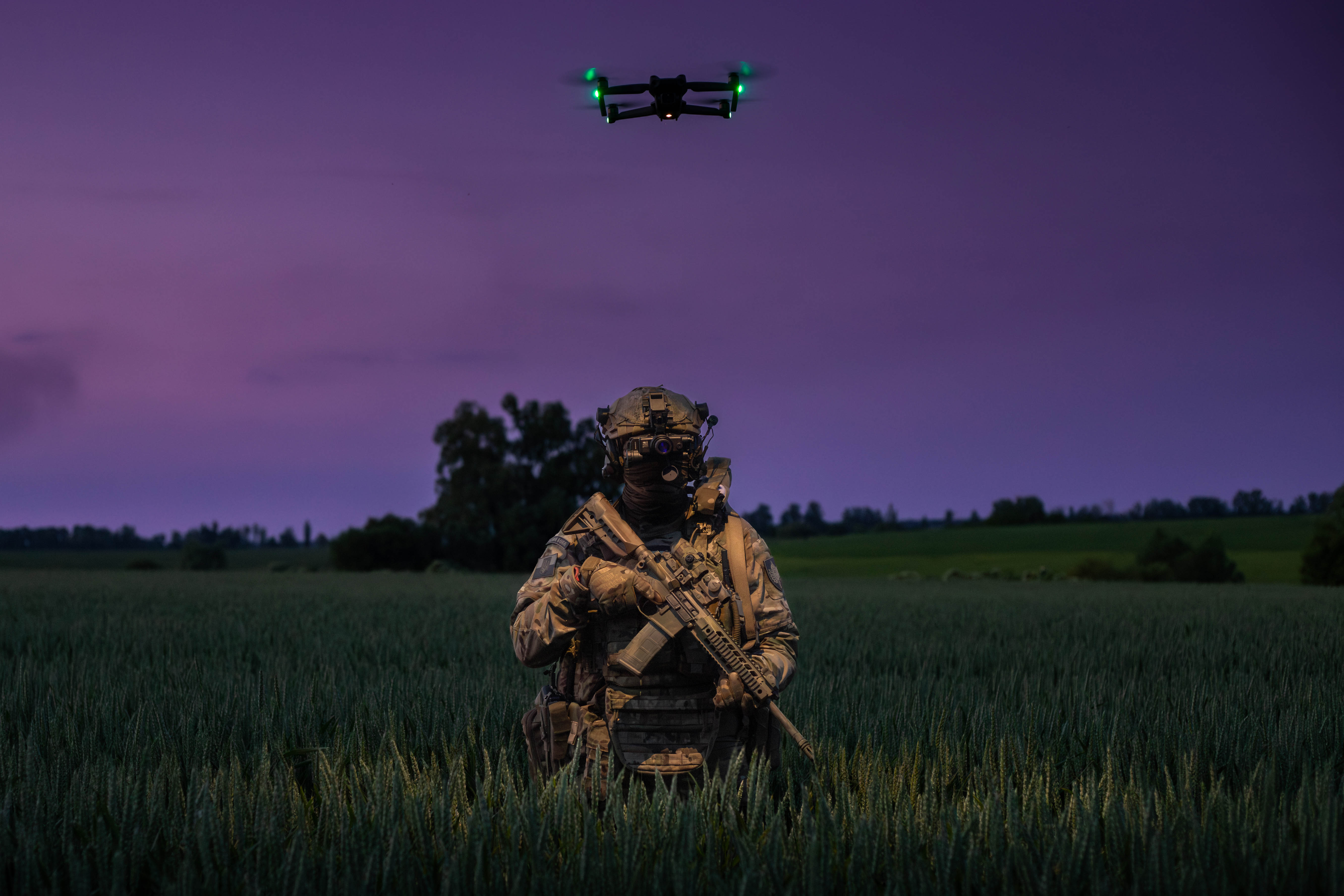
Longest day in the war
A Ukrainian drone was shot down near one of the mines in the area of Marinka in 2015. The task was to drive an armoured vehicle into the territory controlled by the Russians, reach the mine and retrieve the drone. An enemy sniper, shooting on the approaches to the mine from a slag heap, was among the most likely threats. There was fire support from their fighters for insurance, which were supposed to "crush" the sniper on the ground.
That's how it looked in theory.
Life turned out differently.
The group, which included Oleh Yemets, was dropped off at the planned location. It turned out that there was no armoured vehicle. There was no fire support either. There was a minefield ahead. And there were two bomb disposal experts in the group, called "disposable" behind their backs because of their low level of qualification.
Yemets still doubts the value of that lost drone. But no one cancelled the order, it had to be carried out.
And they walked across the mined field "like a bunch of idiots." It was 600 metres to the slag heaps, where the sniper was supposed to be.
They started moving. Suddenly, Yemets heard a shot, 200 metres away – in addition to the sniper on the slag heaps, there was another one somewhere nearby.
The weapon had a silencer. That is why only he and sniper Viktor understood that the group was being shot at. All the others – fighters without experience – did not have the faintest idea.
Oleh and Viktor glanced at each other. To stop meant that the group would be shot dead.
They kept silent. They continued to move.
Another shot.
They kept going.
It was not clear where they were shooting from. But the distance was getting shorter.
"I can imagine how it looked from the enemy's side. A man is sitting in front of a minefield. A group appears on the field in broad daylight. He jumps out, starts shooting and misses. And they continue to move, and no one reacts. He shoots again. Zero reaction. And then he most likely just ran away," Oleh says.
Yemets calls this day, when they retrieved the drone and miraculously came out alive, the longest on the front.
When the war in Donbas began, the members of the Centre began not only to train specialists from the Armed Forces of Ukraine and the Ministry of Internal Affairs but also took part in hostilities themselves.
The group led by Yemets was given two types of tasks: physical protection of aerial scouts and the recovery of downed reconnaissance equipment from the territory controlled by the enemy.
It was during the second type of task that he experienced the longest day of the war.
While working with aerial scouts, in particular with the legendary Volodymyr Chubaka ("Chewbacca") Kochetkov-Sukach, Yemets realised that the war had changed.
As a scout, he knew how to move behind the enemy's rear, investigate objects, conduct surveillance, and carry out sabotage. But all this was nothing compared with what one UAV operator could do.
Video: Security Service of Ukraine on YouTube
Then the direction of the Centre for Special Tactical Training changed. It continued to train reconnaissance and sabotage units but concentrated on technical intelligence assets.
To put it simply, it started training people how to use drones. Which at that time was the usual working tool of wedding operators, not the military.
When the White Wolf special unit was created after the full-scale invasion, drones became its main weapon.
A billion dollars down the drain
"Mum, anyway, we had such a shit show tonight. Fifteen Cargo 200 [post-soviet code word for military fatalities- ed.]. Fifteen! Can you imagine this kind of show?" Yura, a Russian soldier, tells his mother about the events of the previous night in an intercepted phone call.
Here is what happened. Russian soldiers stole a TV set from a local resident and climbed into a T-72 tank to watch a film. The crew of the White Wolf special forces unit located the tank and dropped a shell on it from a drone. It hit the tank’s ammunition.
Russian viewers never found out how the film ended.
Video: Security Service of Ukraine on YouTube
"As of now, our fighters have destroyed 511 enemy military vehicles. Our own assets and personnel took out 420 of those, and we destroyed another 91 in cooperation with other units," Yemets shared that the previously reported round number has increased significantly since. "We carry out a full cycle: reconnaissance, strike and verification. For each unit of equipment, we have a record of where it was hit, who hit it, the precise point of impact and a video recording."
Today, the White Wolf special forces unit operates a dozen different types of equipment, including kamikaze drones and long-range UAVs.
Yemets tells us that their recipe for success has two ingredients. The first is development of their own equipment and successful engineering solutions. The second is robust training for combat units. This includes skills required for night operations, the ability to respond in critical situations, in-depth knowledge of cartography and experience in navigating without GPS ("Navigating is a very proper wolf skill").
Here is another incredible statistic. While having hit an impressive number of targets, the special forces unit has lost less than 20 drones since the start of the full-scale war.
"Some units spend hundreds of drones," Yemets makes a comparison. "As for the ratio of equipment we destroyed to the number of drones we lost, our figure is 22 (i.e., before being destroyed, one drone managed to bomb 22 combat vehicles – Ukrainska Pravda). Our nearest neighbour in this table has nine.
Yemets can also speak the language of money – they just made the relevant calculations a month ago. They invested about US$200,000 in the equipment for their unit, while they destroyed more than a billion worth of Russian equipment.
Since the start of the full-scale invasion, the White Wolf fighters have been defending the Kyiv region. They adjusted the fire for artillerymen from the 72nd Brigade and were deploying attack drones themselves.
While Yemets was observing the enemies from a drone's eye view, he perceived them as useless, almost defenceless creatures. They were lining up their vehicles in rows, making them easy pickings. It felt like striking children.
Yemets was in for a big shock when, along with the rest of the world, he found out what these "defenceless creatures" had committed in Irpin and Bucha.
A "romantic touch" to the great war
The White Wolf fighters educate Russians in several stages.
Stage one. Upon seeing a UAV, Russian soldiers who have just arrived at the position start attacking it using small arms. They are weaned from this habit in a day or two: the drone operator simply starts to deploy a drone to target the gunners instead of the equipment.
Most of the drones lost by the unit were hit by electronic warfare devices rather than assault rifles.
The second stage can take a week. When tank crews hear the drone chirping, they start hiding under the combat vehicle. This place seems the safest to them.
When a drone shell hits the tank’s ammunition, it detonates, the turret flies off, and a crater remains in place of the tank.
The third stage is when, hearing a drone, the Russians drop everything and flee the place of a possible attack.
Yemets calls this the evolution of Russian thought.
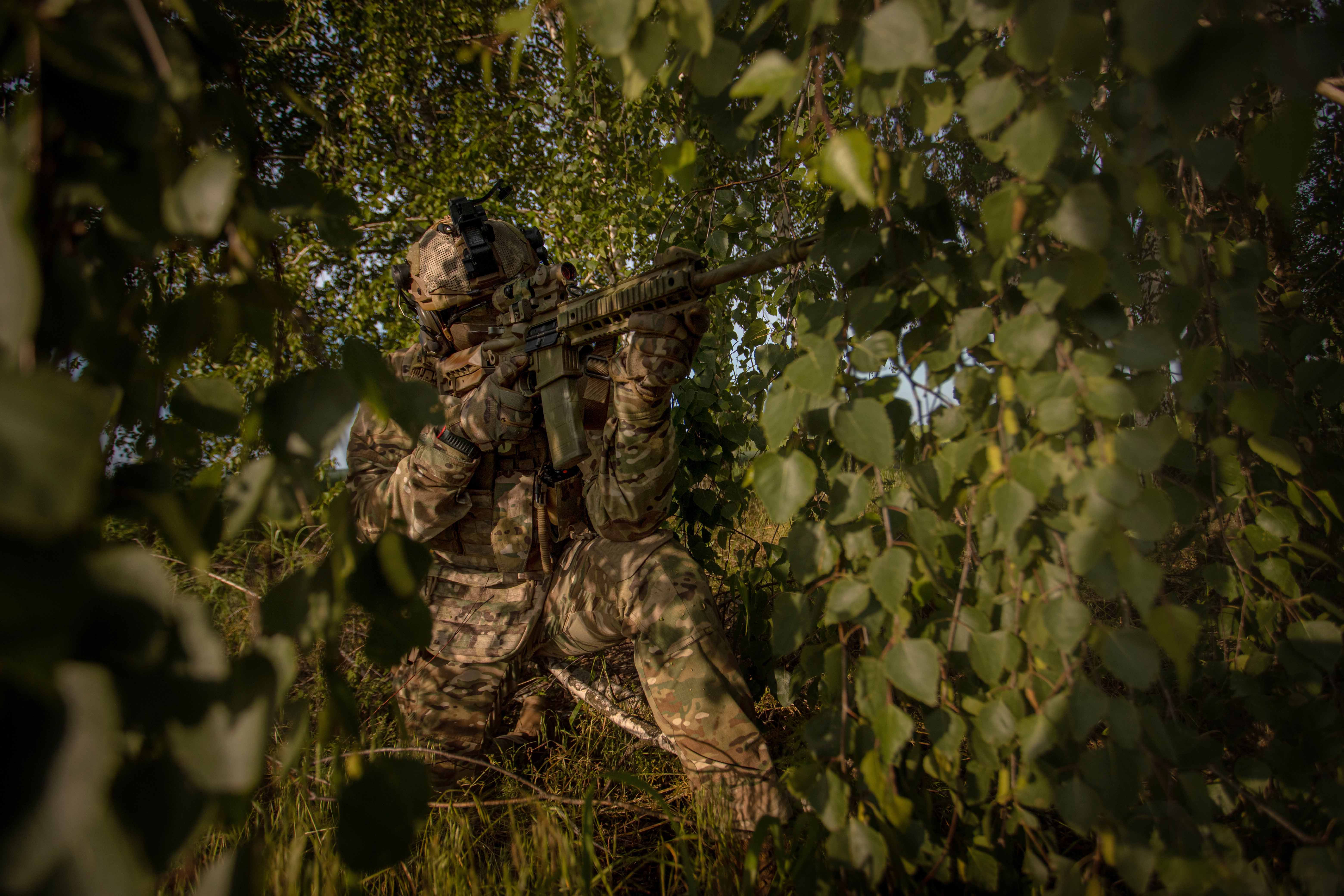
He observed this evolution during the battles for Kharkiv Oblast last summer. Back then, the White Wolf unit was tasked with destroying military equipment in a certain area of the front line.
It turned into a cycle of fire. The enemy kept tanks at their combat position - the "wolves" burned them using drones - the Russians rolled out new ones - the Ukrainian military destroyed those as well.
The White Wolf unit destroyed 60 tanks in a few weeks.
Yemets calls the preparations and the upcoming counter-offensive a delicate job. He adds that the Kherson operation cost them more blood.
Since then, many settlements have become more than just names to him: Kherson, Marinka, Bakhmut, Kupiansk...
However, there was no cycle of fire any longer. The Russians became better equipped in terms of weapons and electronic warfare means and started to counter effectively.
"This is a constant struggle between thinking beings on this side and on the other. The enemy adapts to us, and we change our tactics. They are trying to find a key to us - we move away so that the key does not fit," Yemets says.
The day before we spoke, the soldiers of the White Wolf unit destroyed two more Russian tanks.
At a certain point, Yemets had recognised the advantage of drones and decided to reorient his "wolves" to this equipment, which proved to be incredibly effective.
Today, however, he would disagree with those who call these hostilities a war of drones.
"It’s a war of meanings, a war of tactics and strategies, a war of will and resources, and only then – as a little romantic touch – it’s a war of drones," Yemets says. "It may happen that the means of countering drones will improve faster than the drones themselves. And then UAVs will become irrelevant. In this case, I will pick up my small arms again and will carry on fighting the invaders as best as I can."
First
His nom-de-guerre consists of one character: "1". He got it during his training. It was simply by chance, when everyone was given call signs to use for radio communication.
Yemets became the "First". And he remained the first.
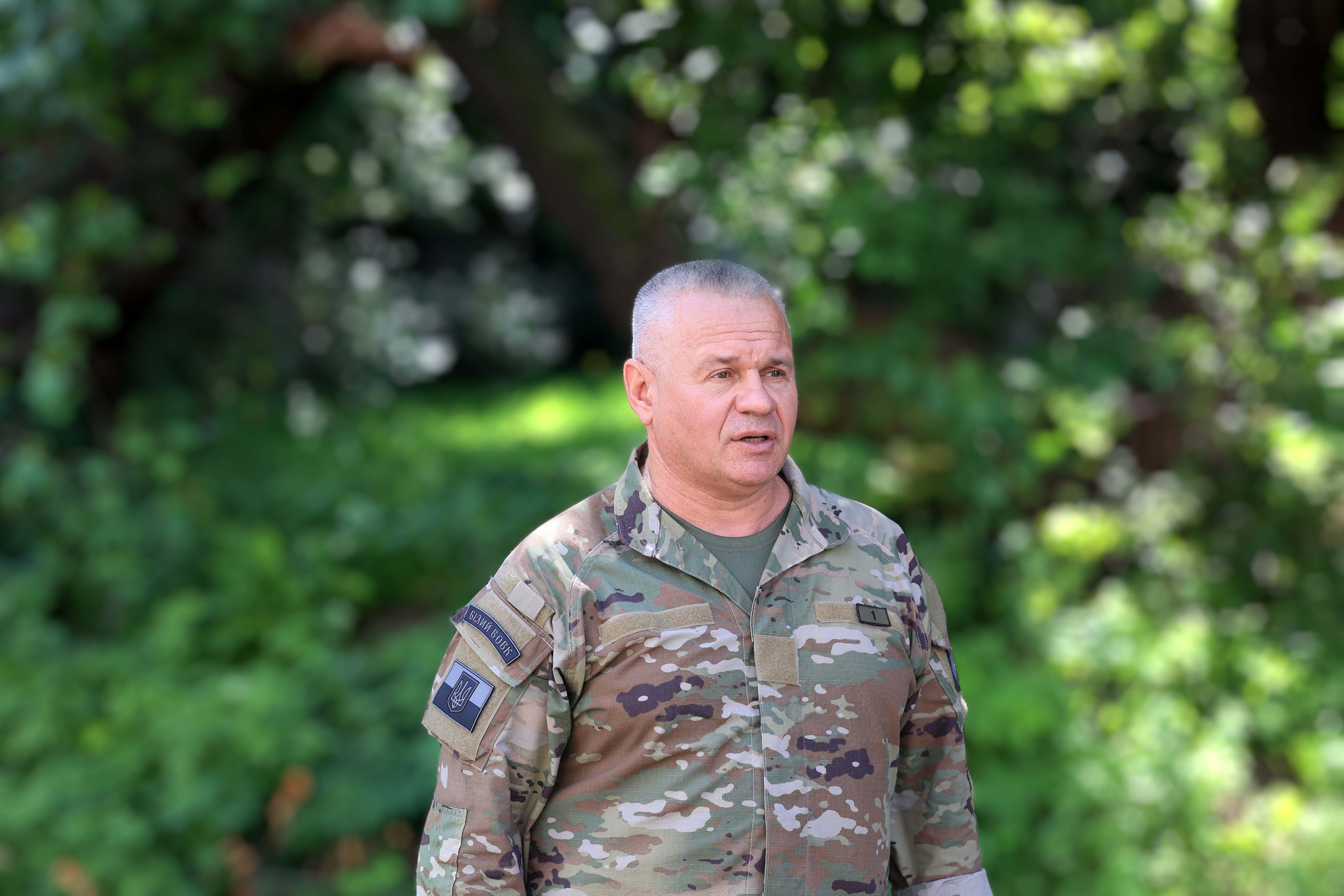
The wolves have one principle that Yemets really likes. It is the change of leader:
"The composition of a wolf pack is quite orderly: the strongest always takes his due place. If a young one attacks the leader and cannot win, he exposes his neck in a pose of submission. And the old wolf does not kill him. One day, the young one will defeat the old one, and then the old one will submit and stay alive. By not killing the young, you raise the strongest. By not killing the old one, you do not lose his experience."
Yemets says that his unit operates in the same way. Members can take a position only by proving themselves. Neither the number of previously received medals, nor age, nor gender matter. He emphasises gender separately: there are women in the unit who command combat groups.
Lack of experience and a non-combat line of work will not be an obstacle for those who want to become part of the White Wolf unit either.
"For example, an owner of a well-known bakery is a member of my unit. When he joined us on 26 February 2022, he had zero combat training, he was just a man who wanted to be of use. We turned him into one of the best bombers, and he has destroyed dozens of enemy tanks. He has recently received the Order of Bohdan Khmelnytskyi, third class."
What else does one need to join this special-forces unit, apart from no criminal record and a Ukrainian passport? To be a wholesome person. To value fundamental things. And then it will become clear whether you fit in with the pack.
"When we talk about White Wolf, we often use the word "I". But it is the actions, talents and abilities of many people who make up this unit," Yemets explains.
"Major General Vasyl Maliuk personally ensured that this unit was preserved. I am saying this not to please the leadership, but because it is fair. And it is an honour for our unit to serve with the Security Service of Ukraine’s Alpha Unit, which has become our home.
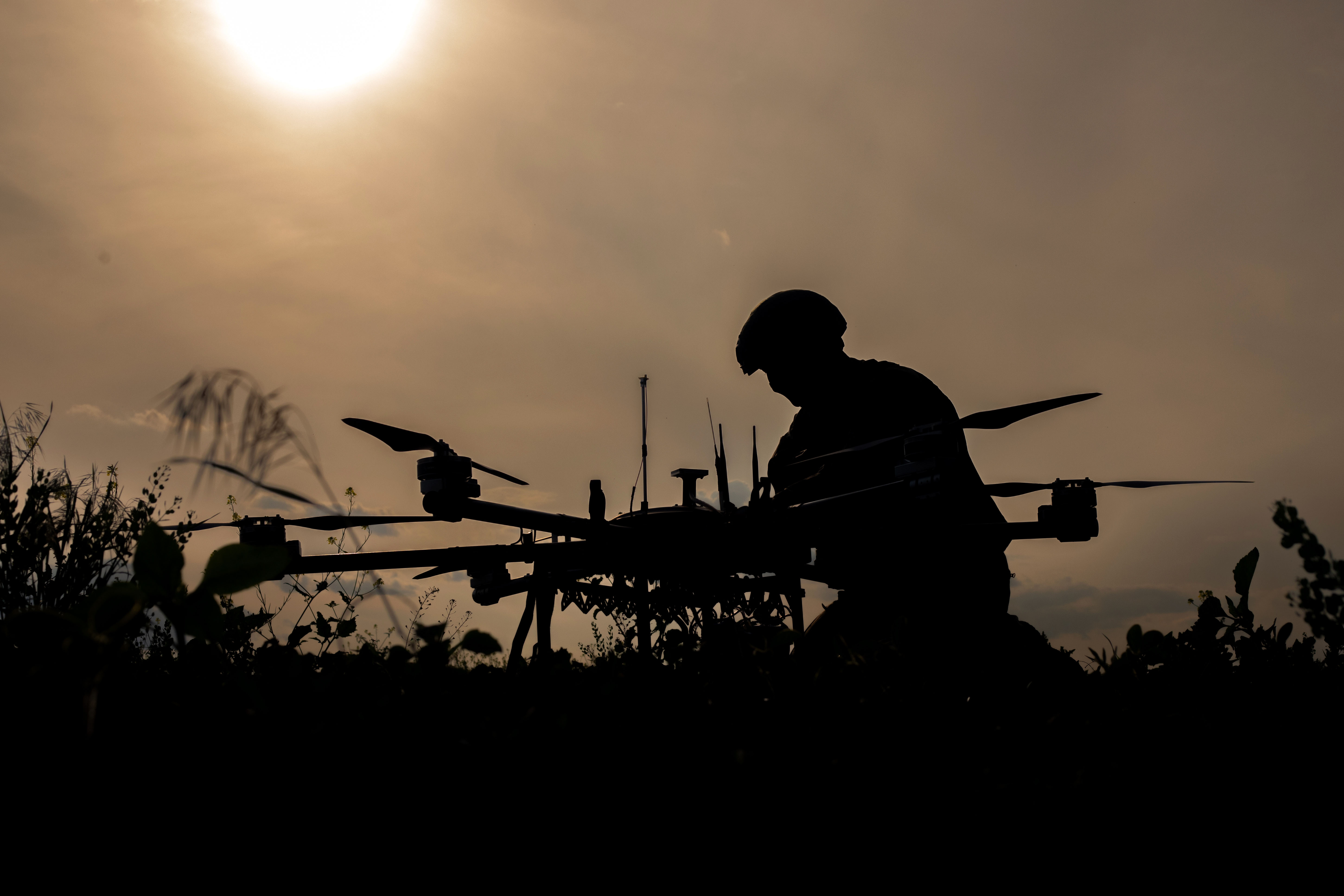
The flame of war will spread to Russia
"I am certain of only a few things about this war. This war will last for a long time. And we will pay a heavy price in the blood of our compatriots," Yemets says.
However, he is certain of one more thing: the war will increasingly spread to the territory of Russia.
That's why one of the tasks he sets for the engineers is to increase the reachability of the drones.
And he is never satisfied in this regard. At first, the drones could reach up to five kilometres. Then they were able to reach the enemy ten kilometres away. As time passed, this distance increased to fifteen. But it was not enough for the commander.
Now his crews are able to attack at a distance of a few dozen kilometres. But that's not enough for Yemets. He needs five hundred.
Then it will become possible to target the enemy's critical infrastructure. Then the Russians won’t be able to keep from focusing on their own problems and not meddle in Ukraine.
"We need to make their lives dangerous, to get them used to waking up to anxiety, to generate social tensions in them, so that many criminal elements can be unleashed upon their towns and villages.
They will bring the savagery they have wreaked upon our fields to their own country. And then it will become their problem."
***
Yemets has set himself an ambitious goal: to change human nature, no more, no less.
And he used to develop his own business primarily to fulfil his academic ambitions in gene engineering. For him, human DNA is a code. And if the code contains various pathologies and diseases associated with DNA defects, then it needs to be edited.
"And by changing the code, you can change a person's fate," Yemets explains.
So far, fate has been paving the way for him.
Once upon a time, Yemets was supposed to become a serviceman. But after completing his military service, he defied fate and started working in academia.
Once upon a time, he wanted to live in Kyiv and work at a furniture factory, but fate sent him to the States to be an academic.
Years later, Yemets outsmarted fate again. He left his established life, returned home, founded a business and plunged into DNA research.
And then the war broke out.
"They are stealing my most productive years," 55-years-old Yemets says. "I would like to be doing something completely different. I would simply like to continue my research. I am interested in many things in this world, beyond murder.
I am already at an age when I must think about closure. But in my last years, when I could have fulfilled myself as a scientist, as a creative person, I am forced to fight."
Oleh Yemets's path is a dance of fate and personal choice, where one partner leads, then another.
And now, even though fate is setting the pace, it ain't over till the fat lady sings.
Rustem Khalilov, UP
Translators: Sofiia Kohut, Oxana Hart
Editor: Susan McDonald